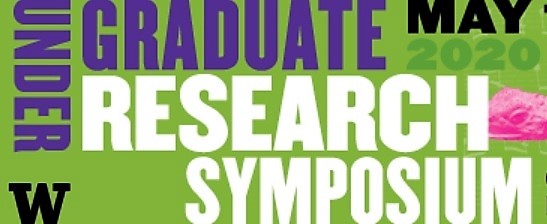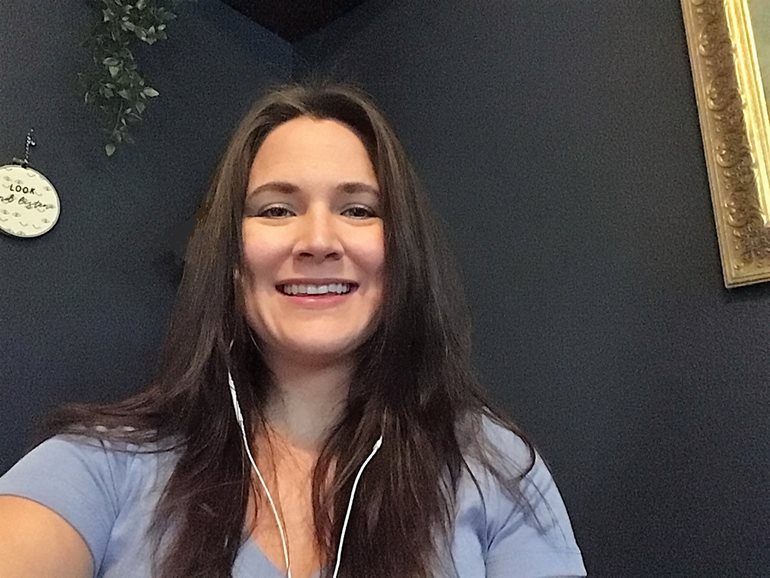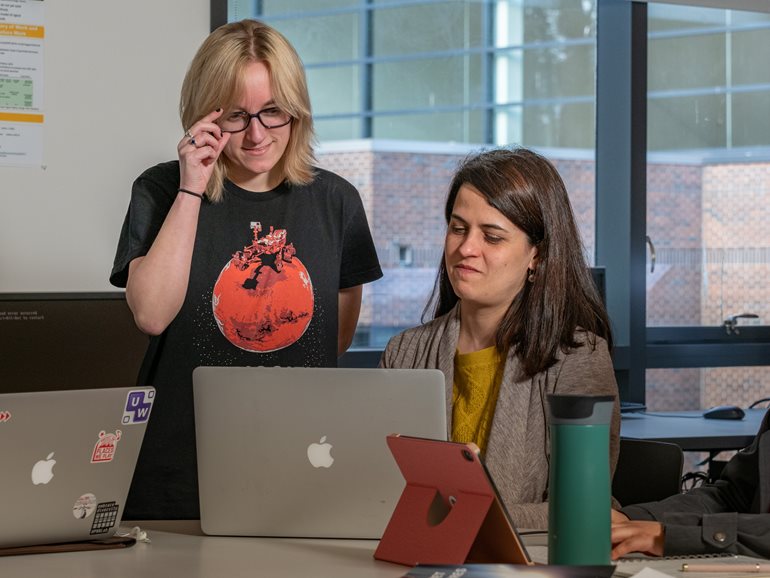
Each spring, more than 1,000 undergraduate researchers from throughout the University of Washington usually gather on the Seattle campus for a day of posters and presentations. But not this spring, not during the coronavirus pandemic, they didn’t.
The 23rd annual event moved to a teleconference with multiple “rooms” and ongoing videos watched by remote participants. More than 800 students made presentations. Poster sessions were pre-recorded short talks with slides, then with the student available live for questions. The oral presentations were live.
Although the traditional symposium format was upended, the students deserve to be celebrated for their accomplishments, said Carolyn Brennan, assistant vice chancellor for research at UW Bothell.
Cross-campus engagement
Brennan tracked 27 UW Bothell students who participated: Most were from the School of STEM, majoring in Biology, Mechanical Engineering, Electrical Engineering or Physics, but others came from the School of Business and the School of Interdisciplinary Arts & Sciences.
Four pre-major students presented their research this year, testament to the focus UW Bothell places on giving even first- and second-year students the opportunity to engage in research.
Among the presenters in the 2020 symposium were two Mary Gates scholars, Katey Queen and Wynter Broussard.
Boom and bloom

Queen is a senior majoring in Biology who conducts research at Mount St. Helens under the guidance of Cynthia Chang, assistant professor in the School of STEM. Alex Wachter, a senior who received a Mary Gates scholarship last year, also presented along with the third member of their team, Isabel Rodriguez, a senior.
Their research is part of a long-term ecological study to document plant succession toward a sub-alpine forest in the area that was blasted in the volcano’s eruption 40 years ago. The status of this summer’s research at the mountain is uncertain because of the pandemic.
Pre-recording the presentation took some of the pressure off talking to a Zoom room, Queen said, but it was a challenge to record one fluid presentation with Wachter and Rodriguez when they all were in different locations with varying equipment. And, of course, three minutes wasn’t enough to explain all their graphs and data.
Queen missed the interactions of an in-person presentation, not to mention all the lost opportunities this spring to attend conferences, network and make connections that can help with graduate school and a career.
“I can’t wait to get back on campus,” Queen said. “I miss spring at UW Bothell; it’s so beautiful with all the bees in the gardens.”
Habitable planets

Broussard is a senior majoring in Physics who is researching the atmosphere of planets outside our solar system, under the guidance of Paola Rodríguez Hidalgo, assistant professor in the School of STEM.
Two other members of this undergraduate research group, senior Hielen Enyew and Sushmitha Radjaram, a pre-major sophomore, also presented.
The researchers are analyzing the atmosphere of exoplanets to identify those in the habitable zone, meaning they have the ability to hold liquid water on their surface.
“I was really nervous while everyone was watching my pre-recorded presentation, but that nervousness just sort of disappeared when I started answering questions,” said Broussard, who added her team had practiced by quizzing each other.
Students star
Rodríguez Hidalgo said the research symposium organizers did a good job setting the sessions and keeping them on time. It also was easy to find the posters and sessions, and captioning added an extra level of accessibility.
“But I missed the energy in the hall and the ability to interact one-on-one with the presenters,” she said, “so I truly hope next year we get back to our regular lives and symposium format.”
That said, she added, being able to have the event via teleconference helped everyone stay connected during this time of quarantine.
“The stars of the show are the students, who have done an amazing job at adapting to the new format — it required much more work pre-symposium — under very difficult circumstances,” she said.



